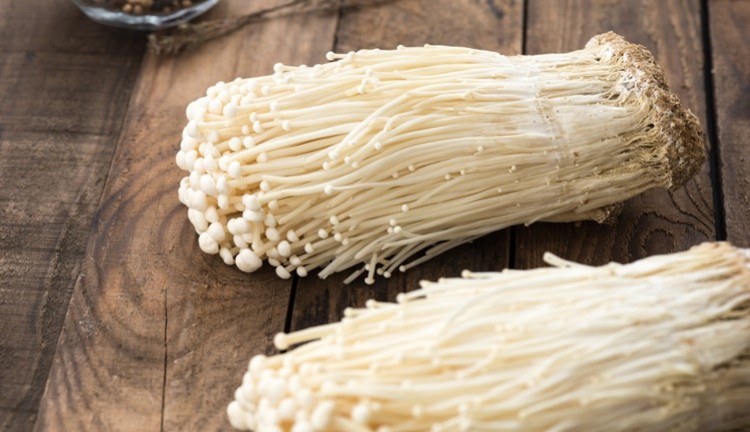The Indonesian government has recently asked importers to withdraw the distribution of enoki mushrooms originating from South Korea.
The product is suspected to be contaminated with Listeria monocytogenes bacteria which has caused outbreaks of infection in the United States, Canada, and Australia.
The destruction of enoki mushroom products imported to Indonesia from South Korea was carried out between 22nd May and 19th June 2020. More than 8,000 kilogrammes of South Korean enoki mushrooms were destroyed in Bekasi.
The ban on enoki mushroom distribution is temporarily applicable to all importers of the product, not only those from South Korea.
Food Safety Expert at Gadjah Mada University (UGM) Prof. Endang S. Rahayu said that Listeria monocytogenes bacteria is one of the pathogenic bacteria that can cause intestinal infections or listeriosis. He said the incubation period for Listeria monocytogenes infection is 1-7 days.
The symptoms that usually appear include fever, abdominal pain, and diarrhea. Infection occurs when bacteria that are consumed grow in the intestines and attack the mucosa, as well as entering the blood vessels and attacking other tissues, including the nerves. This bacterial infection can cause serious effects for vulnerable groups such as toddlers, the elderly, and pregnant women.
“Bacteria consumed by pregnant women can also harm the womb,” he said.
This professor from the Faculty of Agricultural Technology (FTP) UGM also explained that the bacterium is known as a psychrotrophic bacterium that can grow at low temperatures. It’s able to grow between temperatures 1-44°C, with optimum temperatures of 35-37°C. However, at 7-10°C, it can still grow quickly. Listeria monocytogenes can also survive high salt conditions and pH> 5. Moreover, it is also resistant to drying.
“Even so, the bacteria will die if it’s exposed to pasteurisation temperatures, which are around 80°C,” explained the Head of UGM Center for Food and Nutrition Studies (PSPG).
In addition to cooking the food at the right temperature, Trisye has urged people to pack food properly when stored in the refrigerator.
The following are the steps to prevent the spread of Listeria bacteria, as summarised from the UGM website:
Separate storage in refrigerators
This includes foods that must be processed or prepared such as vegetables, eggs, meat, and others.
“If vegetables, including enoki, are processed by heating, the bacteria can die. The danger is that the bacteria moves to the fruit and reproduces, and then consuming the fruit immediately without washing first can cause disease,” he explained.
Use a special container
When storing vegetables, including enoki mushrooms, they should be placed in a separate plastic container. Make sure it’s not mixed with fruits that are ready to eat to avoid cross contamination.
Cook thoroughly
Cook until the Listeria bacteria dies, it needs to be exposed to temperatures above 80 degrees.
Apply good sanitation techniques
Listeria monocytogenes are usually widely distributed in soil, dirt, feces, drains, and unclean equipment. Meanwhile, foods that are often contaminated are various types of food stored in the refrigerator. By implementing good sanitation and personal hygiene, you should minimise diseases in the body from food. Cleaning the refrigerator regularly can also be a preventive measure.
Source: Kompas
Image: Trubus




